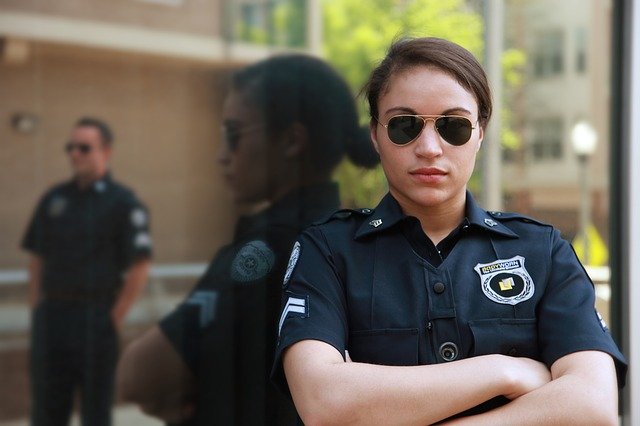Understanding Drug Impairment Detection: The DRE Protocol Explained
Detecting drug impairment can be as precise as measuring blood alcohol levels. The science of drug recognition supports this through a detailed process used to evaluate and identify drug impairment in drivers. At the core of this system is the DRE Drug Impairment Protocol, a 12-step process designed to spot the subtle signs of drug use that standard sobriety tests might miss.
This protocol is far more than a checklist; it’s a dynamic assessment that draws on the expertise of highly trained professionals known as Drug Recognition Experts (DREs). These experts are thorough in their approach, taking into account everything from the subject’s apparent impairment to physiological symptoms and behavior patterns. Law enforcement agencies rely on the DRE evaluation to form the backbone of their impaired-driving investigations.
Navigating the legal challenges that arise from such assessments requires a nuanced understanding of both the law and the science underpinning the DRE protocol. We at the Benjamin Law Firm, LLC possess the legal insight and knowledge to advocate effectively for our clients. With a combination of seasoned insight and an appreciation for the intricacies of drug impairment cases, we stand ready to support those facing charges related to DUI or DWI, ensuring that the most reliable evidence and expert testimony are brought to bear.

Understanding the DRE Drug Impairment Protocol (12-Step Process)
The eyes can reveal secrets of substance use, and when an individual’s coordination falters, it can be a clue to drug intoxication. The Drug Recognition Expert (DRE) Protocol is a systematic 12-step evaluation designed to determine if a person is under the influence of drugs or alcohol. Each step is a crucial part of the process leading to justice.
DREs assess a subject’s impairment using the following steps:
- Breath Alcohol Test: The arresting officer reviews the subject’s breath alcohol concentration (BrAC) results to see if the level of impairment matches the BrAC. If not, the officer calls for a DRE evaluation.
- Interview of the Arresting Officer: The DRE starts the investigation by examining the BrAC results and discussing the arrest with the officer. They ask about the subject’s behavior, appearance, and driving.
- Preliminary Examination and First Pulse: The DRE conducts an initial examination to rule out any non-drug-related issues like injuries. They ask the subject standard health questions, including recent food, alcohol, and drug intake. The DRE observes the subject’s behavior, coordination, speech, breath, and face, checks for equal pupil size and the ability to follow a moving object, and looks for horizontal gaze nystagmus (HGN). They also take the first of three pulse measurements. If a serious medical condition is suspected, medical help is sought immediately. Otherwise, the evaluation continues if drug use is suspected.
- Eye Examination: The DRE checks for HGN, vertical gaze nystagmus (VGN), and convergence issues.
- Divided Attention Psychophysical Tests: The DRE administers four tests: modified Romberg Balance, Walk and Turn, One-Leg Stand, and finger-to-nose.
- Vital Signs and Second Pulse: The DRE measures the subject’s blood pressure and temperature and takes the second pulse.
- Dark Room Examinations: The DRE measures the subject’s pupil sizes using a pupilometer under three different lighting conditions to determine whether the pupils are dilated, constricted, or normal.
- Examination for Muscle Tone: The DRE checks the subject’s muscle tone. Different drug categories can cause muscles to become either rigid or loose.
- Check for Injection Sites and Third Pulse: The DRE looks for injection sites that indicate recent drug use and takes the subject’s pulse for the third time.
- Subject’s Statements and Other Observations: The DRE typically reads the Miranda rights and asks the subject questions about their drug use.
- Analysis and Opinions of the Evaluator: After considering all the evidence, the DRE forms an opinion on whether the subject is impaired and identifies the category or categories of drugs involved.
- Toxicological Examination: The toxicological examination involves chemical tests that provide scientific evidence to support the DRE’s findings.
Understanding the process of a DUI arrest and DWI arrest is essential to protecting your rights. For more information regarding drug DUIs and the protocols involved, call the Benjamin Law Firm, LLC.

Legal Challenges and Defense Strategies
A DRE’s opinion is not infallible in court. Defense teams often scrutinize the process due to the high stakes of a Driving Under the Influence of Drugs (DUID) conviction. The DRE’s 12-Step Protocol, although systematic, faces challenges when the subject’s breath alcohol concentration (BrAC) results do not match the observable signs of impairment. In such cases, alternative explanations for the subject’s condition unrelated to drug use are often considered, including:
- Scientific Evidence: One potent challenge is contesting the scientific evidence presented. Is the testimony backed by comprehensive scientific evidence, or does it rest on subjective assessment?
- Lighting Conditions: The evaluation, which often includes an eye examination, can be skewed by poor lighting conditions, leading to questions about its accuracy.
- Evaluator’s Competence: Defense strategies may also focus on the evaluator’s competence and whether the DRE fully adhered to the 12-step protocol.
- Medical Conditions: The defense often presents evidence of a medical condition that might mimic signs of drug impairment. The prosecution must then exclude these alternative causes for the observed behavior, a task that can sometimes be complex and demanding.
- Toxicological Examination: A critical countermeasure involves insisting on a thorough toxicological examination to rule out the presence of substances that can lead to wrongful accusations.
Medications that are legally prescribed can also lead to a DUI/DWI conviction if they impair the individual’s ability to drive. This can include prescription drugs and even over-the-counter medications. It is essential to be aware of any medications you are taking and how they may affect your ability to drive.
At the Benjamin Law Firm, LLC, we focus on a thorough cross-examination strategy to expose weaknesses in the prosecution’s reliance on the DRE’s assessment. We present a complete picture using evidence beyond the DRE’s opinion, including observable signs, proper conduct, and medical history.

How to Protect Your Rights if Suspected of Drug Impairment
In instances where drug impairment is suspected, you may be subjected to the DRE Protocol to determine if you are under the influence. Knowing how to protect your rights in these situations is critical.
- Remain Calm: Your demeanor can influence an officer’s perception. Stay composed and polite.
- Know Your Rights: You have the right to remain silent. Politely decline to answer incriminating questions without legal representation.
- Breathalyzer: If an officer requests a breath alcohol test, understand that refusal may have legal consequences, but it is within your rights to refuse.
- Assessment of Injection Sites: Be aware that officers will look for signs of recent drug use, such as marks on the skin.
- Request Legal Representation: You can ask for an attorney before answering questions or taking tests beyond a breathalyzer.
- Vital Signs and Evaluation: A DRE officer may check your pulse, eye reactions, and more.
Our guidance aims to educate you about the process, but if you are suspected of impaired driving, it is crucial to seek legal representation, especially during a DRE evaluation. Each step—whether it’s the DRE protocol, drug evaluation, or interpreting vital signs—can significantly impact your case. The Benjamin Law Firm, LLC can provide you with legal assistance and protect your rights if a law enforcement officer stops you.
Consult the Benjamin Law Firm, LLC for
Facing a DWI or drug-related charge can be a daunting challenge in the criminal justice system. It is essential to know your rights and have reliable legal counsel to guide you. At the Benjamin Law Firm, LLC, we offer the following:
- Experience: Seasoned attorneys with comprehensive knowledge of DWI and drug laws.
- Defense Strategies: Tailored approaches to each case based on a detailed analysis.
- Advocacy: Zealous representation in both state and federal courtrooms.
- Resources: Access to expert witnesses and modern defense methodologies.
We comprehend the gravity of your situation and the adverse impact it may have on your future. Benjamin Law Firm, LLC is at the forefront, offering assistance and strategic defense designed for you. Our aim is not to make promises of “best outcomes,” but rather to apply our proficiency vigorously, ensuring that your case receives the attention it deserves.
















